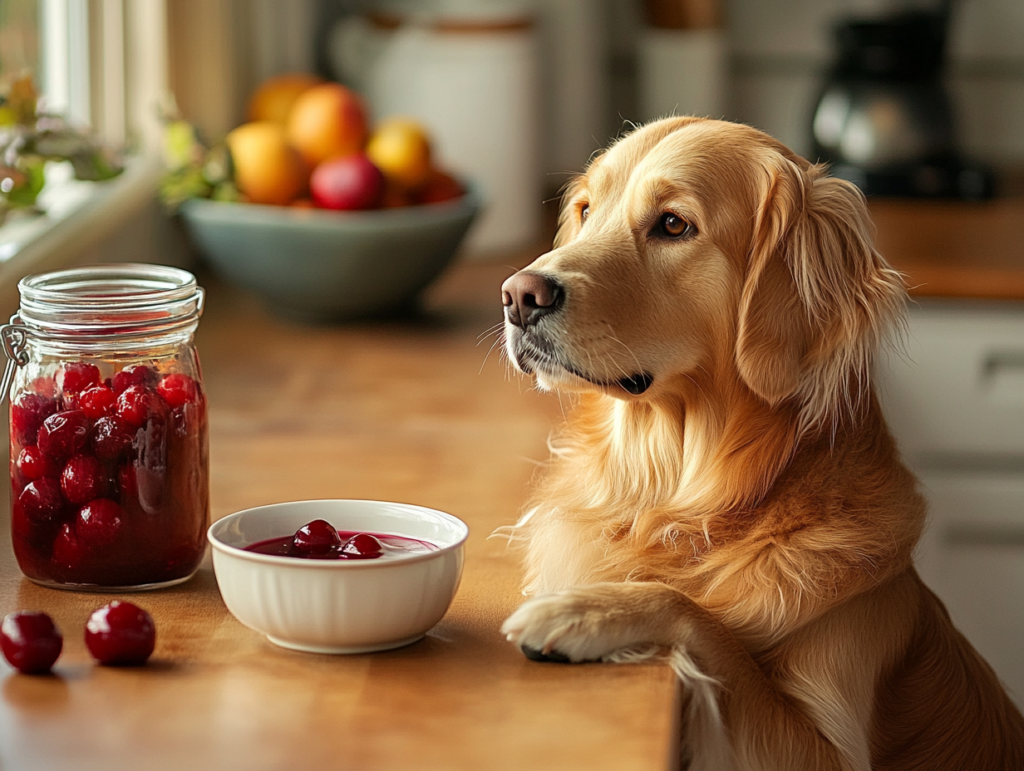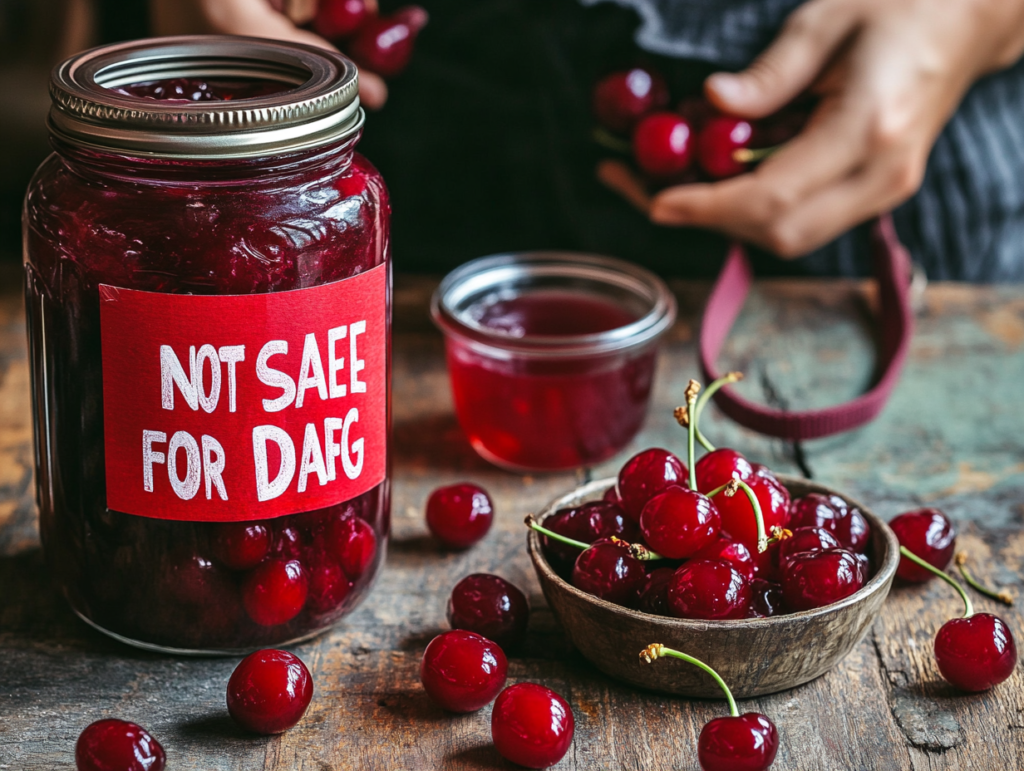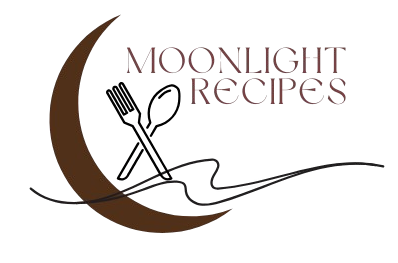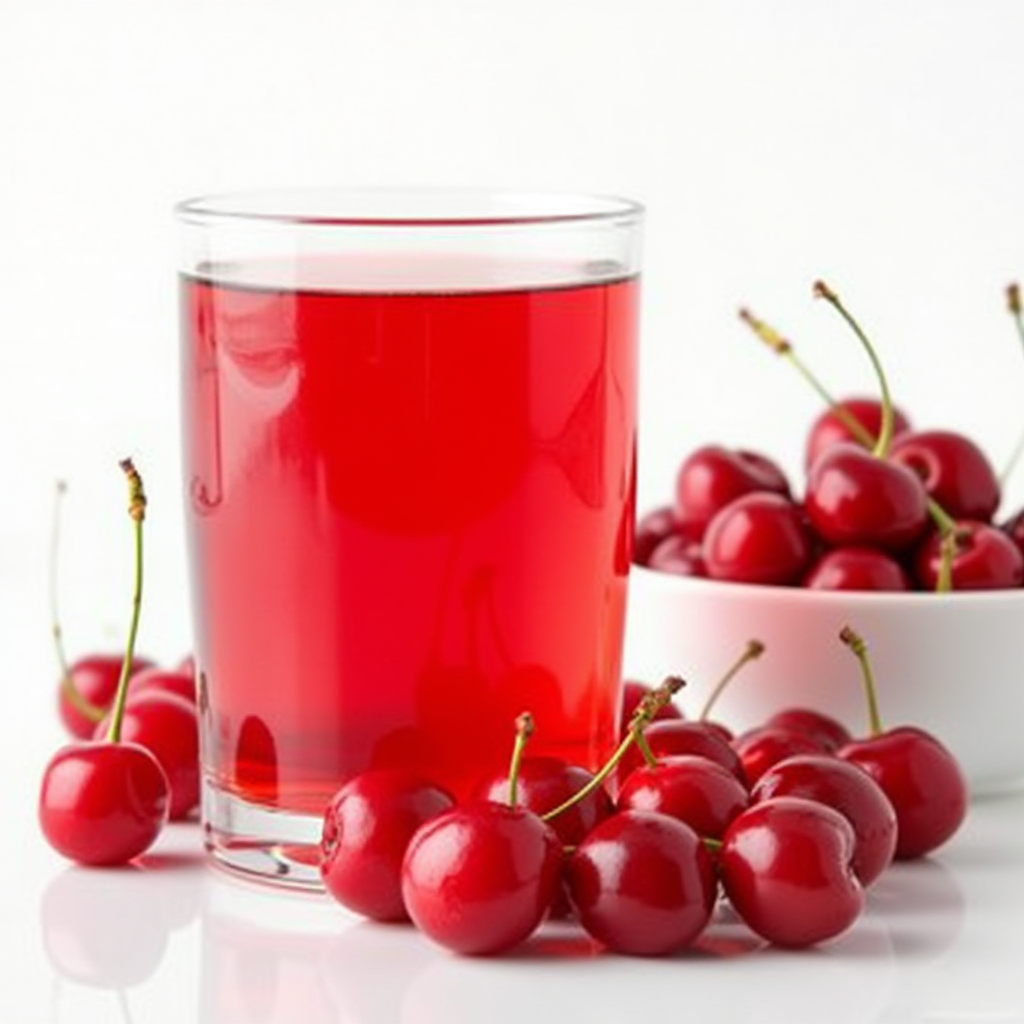Can Dogs Have Maraschino Cherry Juice? Risks & Safer Alternatives

Dogs are curious creatures, and they often get their noses into things they shouldn’t—especially when it comes to food! One question that often puzzles pet owners is whether dogs can safely consume maraschino cherry juice. While this sweet, colorful drink may seem harmless, the truth is a bit more complicated. This article dives deep into the risks of maraschino cherry juice for dogs, its nutritional pitfalls, and safer alternatives you can consider. Along the way, we’ll also share expert advice and tips to keep your furry friend healthy and happy.
Part 1: Introduction and General Information
What Are Maraschino Cherries?
Maraschino cherries are those bright red, glossy cherries often seen as toppings for desserts and beverages. But their striking appearance isn’t natural—it’s a result of processing that involves sugar, artificial dyes, and preservatives. These cherries are preserved in a syrup that’s sweet and appealing to humans but potentially harmful to pets.
The juice from these cherries is even more concentrated in terms of sugar and additives, making it a poor choice for dogs. Some versions may even contain xylitol, a sugar substitute that’s extremely toxic to canines.
How Are Maraschino Cherries Made?
To better understand the risks, let’s look at the production process. Initially, fresh cherries are bleached to remove their natural color. They’re then soaked in a solution of sugar, food dye, and flavoring agents. This gives them their characteristic red hue and syrupy sweetness. Unfortunately, ingredients like high fructose corn syrup, Red 40 dye, and benzoate preservatives are not suitable for canine consumption.
Why Pet Owners Should Be Concerned About Human Foods
It’s common for dog owners to share table scraps or sweet treats with their pets, thinking, “A small bite won’t hurt!” However, many human foods contain ingredients that dogs can’t digest properly, leading to digestive upset or worse. Maraschino cherry juice is one such item that falls into the category of risky foods for dogs.
Stay tuned for Part 2, where we’ll explore the nutritional composition of maraschino cherry juice and its potential health impacts on your pup.
Part 2: Nutritional Composition and Risks

Nutritional Composition of Maraschino Cherry Juice
Maraschino cherry juice may look and taste appealing, but its nutritional profile raises serious red flags for dogs. The juice is often loaded with sugar, artificial dyes, and preservatives—none of which are beneficial for your furry companion.
A typical serving of maraschino cherry juice contains high levels of sucrose or high fructose corn syrup, which can overload your dog’s system. Artificial dyes, such as Red 40, are added to give the juice its signature vibrant color. While these dyes may be harmless to humans in moderation, they can irritate a dog’s digestive system. Additionally, preservatives like sodium benzoate and potassium sorbate are common in this syrupy liquid, which may cause adverse reactions in sensitive dogs.
One of the most alarming risks is the potential presence of xylitol, a sugar substitute occasionally used in flavored syrups. Even trace amounts of xylitol can cause rapid insulin release in dogs, leading to life-threatening hypoglycemia.
Are Maraschino Cherries Safe for Dogs?
The cherries themselves are problematic, but the juice can be even worse. The concentrated nature of maraschino cherry juice amplifies its sugar content, making it especially risky for canine consumption. Sugar poses numerous problems for dogs, including:
- Digestive upset: Dogs cannot process large amounts of sugar, leading to symptoms like diarrhea and vomiting.
- Obesity risks: Regular exposure to sugary foods can lead to unhealthy weight gain and even obesity in dogs.
- Dental issues: The high sugar content can contribute to tooth decay and gum disease.
Artificial additives are another cause for concern. Substances like Red 40 have been linked to hyperactivity in pets and potential allergic reactions. Over time, exposure to these chemicals can strain a dog’s liver and kidneys, as their bodies are not designed to process such synthetic compounds.
The risks increase with the quantity consumed. While a tiny lick might not cause immediate harm, repeated exposure or large amounts could lead to more severe health complications.
Specific Risks of Maraschino Cherry Juice for Dogs
When it comes to maraschino cherry juice, the risks are both immediate and long-term. Dogs consuming even small quantities may experience:
Short-Term Effects
- Diarrhea and vomiting: The high sugar and additive content can upset your dog’s stomach, leading to uncomfortable symptoms.
- Lethargy or hyperactivity: While some dogs become sluggish after consuming sugary substances, others may show signs of hyperactivity due to the artificial ingredients.
Long-Term Effects
- Obesity and diabetes: Regular exposure to sugary treats like maraschino cherry juice increases the likelihood of obesity and diabetes in dogs.
- Liver and kidney strain: Preservatives like benzoates may harm your dog’s organs over time, especially with frequent ingestion.
Potentially Toxic Additives
Preservatives such as sodium benzoate and artificial flavors can have unpredictable effects on sensitive dogs. Some dogs may develop allergic reactions, ranging from skin irritations to more severe symptoms like respiratory distress.
To protect your dog, it’s crucial to avoid offering maraschino cherry juice, no matter how tempting it may seem. Instead, focus on safer and more nutritious alternatives, which we’ll explore in the next sections. Stay tuned!
Part 3: Alternative Options and Veterinary Insights
What Should You Do If Your Dog Consumes Maraschino Cherry Juice?
Accidents happen, and if your dog has consumed maraschino cherry juice, it’s important to stay calm and take appropriate action. The first step is to observe your dog closely for symptoms. Common signs of a negative reaction include:
- Vomiting or diarrhea
- Increased thirst or urination
- Lethargy or hyperactivity
- Signs of abdominal discomfort
If you notice any of these symptoms—or if you suspect your dog has consumed a large quantity of the juice—contact your veterinarian immediately. They may recommend bringing your dog in for evaluation or suggest steps you can take at home, such as inducing vomiting (only under veterinary guidance).
In the meantime, keep your dog hydrated. Sugar and additives can dehydrate your pet, so offering fresh, clean water is essential. Avoid providing additional food or treats until you’re sure your dog’s digestive system has stabilized.
Safe Treat Alternatives to Maraschino Cherry Juice
Instead of offering risky treats like maraschino cherry juice, why not choose healthier options that your dog will love? There are plenty of dog-safe fruits and juices that provide natural sweetness without harmful additives.
Dog-Safe Fruits
- Blueberries: Packed with antioxidants and low in sugar.
- Apple slices: Remove seeds and core; a crunchy, refreshing treat.
- Watermelon: Seedless and rind-free, perfect for hydration.
Dog-Friendly Juices
- Carrot juice: Rich in vitamins and easy on the stomach.
- Cucumber water: A hydrating and refreshing option.
Homemade Fruit Juice for Dogs
You can prepare simple, healthy juices at home by blending dog-safe fruits with water. For example, blend a small handful of blueberries with fresh water to create a nutrient-packed drink. Always avoid adding sugar, artificial sweeteners, or flavorings.
By incorporating these safe options, you can give your dog delicious treats without compromising their health.
Veterinary Opinions on Dogs and Human Foods
Veterinarians often caution against sharing human foods with dogs because many seemingly harmless ingredients can pose risks to their health. One common mistake pet owners make is assuming small amounts of sugary or processed foods are safe. Unfortunately, even tiny quantities of substances like xylitol or artificial dyes can cause significant harm.
Experts emphasize that a dog’s diet should primarily consist of high-quality pet food formulated to meet their specific nutritional needs. Occasional treats should be healthy, natural, and free of harmful additives. Stick to fruits and vegetables that are proven to be safe for dogs and avoid offering anything unfamiliar without consulting your vet.
Ultimately, being mindful about what your dog eats ensures they stay happy, healthy, and full of energy for years to come. Stay tuned for the next section, where we’ll discuss preventative measures to keep your dog safe from harmful foods like maraschino cherry juice!
Part 4: Preventative Measures and FAQs
How to Prevent Your Dog From Consuming Unsafe Foods
Keeping your dog safe starts with prevention. Ensuring your furry friend doesn’t accidentally consume maraschino cherry juice or other harmful foods requires a mix of proactive steps and consistent training.
Secure Food Out of Reach
- Always store sugary foods, juices, and potentially harmful items in cabinets or on high shelves.
- Use pet-proof containers to store snacks and leftovers.
Supervise and Train Your Dog
Training your dog to avoid unattended food is essential. Teach commands like “leave it” or “drop it” to prevent them from snatching food from counters or the floor. Reward good behavior with dog-safe treats to reinforce learning.
Control Access to Your Kitchen or Pantry
Using baby gates or keeping certain areas off-limits can significantly reduce the risk of accidental consumption.
By combining secure storage with proper training, you can minimize the likelihood of your dog consuming unsafe foods and protect them from potential health risks.
FAQs About Dogs and Maraschino Cherry Juice
Can Dogs Eat Regular Cherries Instead of Maraschino Cherries?
While regular cherries are safer than maraschino cherries, they still pose risks. The pits, stems, and leaves contain cyanide, which is toxic to dogs. Always remove these parts and offer cherries in moderation if you choose to share them.
What Happens if a Dog Drinks Sugary Liquids Like Soda or Juice?
Sugary drinks can cause immediate digestive upset, including diarrhea and vomiting. Over time, frequent consumption may lead to obesity, diabetes, and dental issues. Always opt for water as your dog’s main beverage.
Is Cherry Flavoring Safe for Dogs in Treats or Medications?
Artificial cherry flavoring is generally safe in small amounts when included in vet-approved treats or medications. However, always check the ingredient list to ensure there’s no xylitol or other toxic additives.
Why Is Xylitol Toxic to Dogs?
Xylitol causes a rapid insulin release in dogs, leading to dangerously low blood sugar levels (hypoglycemia). Symptoms include vomiting, weakness, seizures, and, in severe cases, death. Even trace amounts can be life-threatening, so it’s critical to avoid foods containing this ingredient.
Can a Small Amount of Maraschino Cherry Juice Still Harm My Dog?
Yes, even a small amount can cause digestive discomfort due to its high sugar content and artificial additives. While a tiny lick may not lead to severe symptoms, it’s best to avoid letting your dog consume it altogether.
What Are the Long-Term Health Risks of Feeding Dogs Sugary Treats?
Regularly giving dogs sugary foods can result in obesity, diabetes, and dental problems. Over time, their liver and kidneys may also become strained from processing artificial ingredients and preservatives. Prioritize natural, dog-safe treats to maintain their overall health.
With the right preventative measures and awareness of potential risks, you can ensure your dog stays safe and healthy, avoiding harmful foods like maraschino cherry juice. Stay tuned for the conclusion and key takeaways!
Part 5: Conclusion and References
Conclusion
When it comes to sharing human foods with your dog, it’s crucial to prioritize their safety and well-being. Maraschino cherry juice may look harmless, but it poses significant risks due to its high sugar content, artificial dyes, and preservatives. Consuming this juice can lead to immediate issues like digestive upset and longer-term complications such as obesity and diabetes. For dogs, even small quantities of harmful additives like xylitol or benzoates can be dangerous.
Thankfully, there are plenty of safe and healthy alternatives to consider. Fruits like blueberries, apple slices, and seedless watermelon make excellent treats for your furry friend. You can also prepare homemade, dog-friendly juices using simple, natural ingredients.
Preventative measures, such as training your dog and securing harmful foods out of reach, go a long way in keeping your pet safe. Most importantly, always consult a veterinarian if you’re uncertain about a specific food or notice any unusual symptoms. Their expertise ensures your dog receives the best care possible.
By staying informed and vigilant, you can enjoy a happy, healthy relationship with your pet—without the risks posed by unsafe foods like maraschino cherry juice.

